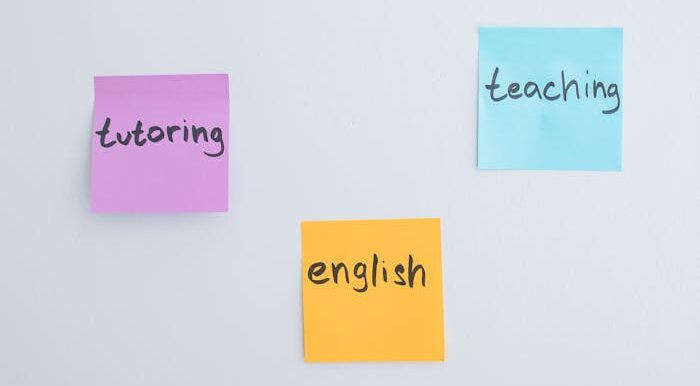Social Security Schemes in India are an integral part of Indian government system that ensure the well being of its people. It offers social and financial support to the citizens of India for various reasons such as old age, physical disability, sudden death of the earning family member, unemployment, etc. It is a comprehensive system set up by the government in which various initiatives are taken time and again to address the social issues including medical assistance, education, employment, accommodation, food and much more.

Why are the Social Security Schemes Needed?
Social Security Schemes in India are crucial to champion the cause of bringing equality amongst its people. Although it seems far fetched and cannot be materialized fully, a small step is taken to provide good life to the underprivileged strata of the society. In a developing country like India, where many struggle to make ends meet, there is a pressing need to implement these schemes to provide a silver lining to their lives.
The Ministry of Labour and Employment in India is responsible for implementing these Social Security Schemes. It gathers data through various surveys and devises strategies to address the challenges faced by the marginalized sections of society. Additionally, the Ministry promotes the welfare and protects the interests of the labour force across all sectors.
List of Social Security Schemes in India
The Ministry of Labour and Employment in India is responsible for implementing these Social Security Schemes. It gathers data through various surveys and devises strategies to address the challenges faced by the marginalized sections of society. Additionally, the Ministry promotes the welfare and protects the interests of the labour force across all sectors. It implements these schemes through a digital platform called ‘E-Shram Portal’.
PMSYM – Pradhan Mantri Shram Yogi Maan-dhan
Implemented in 2019, this scheme aims to provide pension benefits to the unorganized sector workers such as rickshaw pullers, self-employed, daily wage labourers, rag pickers, street vendors, etc. It is a voluntary pension scheme in which a worker contributes a monthly amount ranging from Rs. 55 to 200. The maximum contribution of the beneficiary should not exceed Rs. 2000 for a year.
Eligibility:
- Nationality – Indian
- Age – 18-40 years
- Type – Unrecognized worker
- Monthly Income – Below 15000 INR
Benefits:
- Equal amount of contribution is made by the government every month in the account of the beneficiary.
- After crossing the age of 60, an assured pension of Rs. 3000 is payable to the beneficiary every month.
- In case of the death of the beneficiary, 50% of the pension is given to the spouse.
- If both the beneficiary and his/her spouse contribute to the scheme, amount of Rs. 6000 is payable to both of them as joint pension account.
NPS – National Pension Scheme
Launched in January 2004 for government employees and later extended to all citizens in 2009, NPS is a voluntary, long-term retirement savings scheme in India.
Eligibility:
- Nationality – Indian
- Age – 18-40 years
- Type – Small business owners
- Monthly Income – Below 1.5 crore INR
Benefits:
- Equal amount of contribution is made by the government every month in the account of the beneficiary.
- After crossing the age of 60, an assured pension of Rs. 3000 is payable to the beneficiary every month.
- In case of the death of the beneficiary, 50% of the pension is given to the spouse.
PMAY-G – Pradhan Mantri Awaas Yojana – Gramin
Launched in 2016, this scheme is an initiative by the government to provide affordable housing to the people below poverty line.
Eligibility:
- Nationality – Indian
- Type – Casual worker with no fixed employment
- Monthly Income – Below poverty line
Benefits:
- A family having any disabled earning member can also claim the benefit of this scheme.
- A financial assistance of Rs. 1.2 lakh in plain areas and 1.3 lakhs in hilly areas is provided for accommodation.
RGSKY – Rajiv Gandhi Shramik Kalyan Yojana
Implemented in 2005, this scheme provides financial assistance to workers in distress due to closure of establishments.
Eligibility:
- Nationality – Indian
- Must be insured under the ESI Act
- Beneficiary should have contributed to the ESI scheme for at least 5 years.
- Minimum one month of unemployment
Benefits:
- Financial assistance to help the workers meet their daily needs and support their family.
- Skill development training for workers to acquire new skills and hence enhance their employability.
- Medical benefits to the workers and their family.
- Assistance for the education of the children of these workers.
EDLI – Employees’ Deposit Linked Insurance Scheme
Implemented in 1976, this scheme provides life insurance coverage to employees covered under the EPF scheme.
Eligibility:
- Nationality – Indian
- Must be covered under the EPF scheme.
Benefits:
- The minimum insurance amount of Rs. 2.5 lakh and maximum insurance amount of Rs. 7 lakhs
- In case of the death of the beneficiary, insurance amount can be offered to the nominee.
NCS – National Career Service
Implemented in 2015, this scheme provides job matching services to job seekers and employers.
Eligibility:
Anyone can register with NCS portal who qualifies the following criteria:
- Nationality – Indian
- Any job seeker looking for an opportunity to work
- Any employer who wishes to hire skilled workers
Benefits:
- Offering job matching services to both the parties.
- Provides following facilities to the job seeker:
- Skill assessment
- Resume building
- Career counselling
- Job alerts
- Full online accessibility to the job seekers and employers
Apprentices Act, 1961
This scheme provides for the regulation and control of training of apprentices in various trades.
Eligibility:
- Nationality: Indian
- Minimum age: 14 years
- Minimum education: Must have passed 8th grade or equivalent.
Benefits:
- Skill development in a particular trade.
- Practical training in the real work environment
- Fixed stipend during the training period
- Employment opportunity after the completion of apprenticeship
- Adding value to the resume
Maternity Benefit Act, 1961
Implemented in 1961, this act regulates the employment of women during and after childbirth and provides maternity benefits.
Eligibility:
- Nationality: Indian
- Only women employees
- Minimum service period of 80 days in 12 months preceding the date of estimated delivery.
Benefits:
- Paid maternity leave of 3 months.
- Medical bonus of Rs. 2500 to the woman, in case, maternity leave is not availed.
- Job security during the leave period
- Prohibition of the assignment of heavy work to a pregnant or newly mother employee.
- Creche facility at a workplace with 50 or more employees for children aged under 6 years.
Payment of Gratuity Act, 1972
Implemented in 1972, this act provides for the payment of gratuity to employees in certain industries.
Eligibility:
- Nationality: Indian
- Minimum 5 years of continuous service with an employer
- It should be an establishment with minimum 10 employees.
Benefits:
- In case of death or disability, the employee is entitled to receive gratuity even if s/he has not completed at least 5 years of service.
- Gratuity is exempt from the income tax up to a certain limit.
Minimum Wages Act, 1948
Implemented in 1948, this act provides for fixing minimum rates of wages in certain employments.
Eligibility:
- Nationality: Indian
- Except J&K, applicable throughout India in certain employment industries
Benefits:
- Fixed minimum rate of wages
- Regulated working hours
- Payment for the overtime
- Weekly off day
- No unfair deductions from the salary
Equal Remuneration Act, 1976
Implemented in 1976, this act provides for the payment of equal remuneration to men and women workers for the same work or work of a similar nature.
Eligibility:
- Nationality: Indian
- Applicable for all work establishments
Benefits:
- Equality in salary, allowances and other benefits
- No discrimination in recruitment, training and promotion
- Legal protection to women workers against any sort of discrimination
Although some key Social Security Schemes implemented so far in India are listed here, this list is not exhaustive. There are multiple other schemes and programs run by the Ministry of Labour and Employment in India for the upliftment of its people.
References for research:
https://en.wikipedia.org/wiki/Social_security_in_India
https://labour.gov.in/social-security
https://economictimes.indiatimes.com/topic/social-security-schemes
